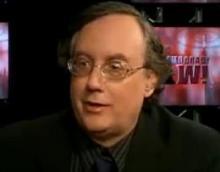China's Self-Destructive Tech Takedown
WASHINGTON, DC – Global equity markets appear transfixed by the Chinese property developer Evergrande, which seems poised to default on part of its massive $300 billion debt as the country’s real estate market cools. Investors are right to be alarmed. China’s property sector accounts for almost 30% of GDP, and there is a well-established link between housing busts and deep recessions.
But property-sector woes are not the only economic danger China faces in 2021-22. The Chinese government’s mounting crackdown on the country’s burgeoning tech sector may pose an even greater threat. After all, China’s dynamic tech firms have the capacity to innovate and drive growth just when the digital revolution, coupled with the green transformation, requires a strong private sector and robust investment flows.
Yet, President Xi Jinping, fearing that firms such as Alibaba, Tencent, and Didi Chuxing have amassed too much wealth, data, and power, has stepped up his attacks on the tech sector this year. Big Tech’s implicit challenge to the Communist Party of China’s monopoly of power has apparently become too serious to ignore.
The regulatory clampdown is wide-ranging and increasingly harsh. In July, for example, the Chinese authorities removed Didi – the country’s dominant ride-sharing app, with 377 million annual active users – from app stores, soon after the company’s successful IPO in the United States. The intervention caused Didi’s share price to crash by about 20%.
The move against Didi is only one episode in a multifaceted battle between the CPC and China’s tech titans. The authorities have also cut Alibaba down to size, by canceling the planned IPO of its fintech affiliate Ant Group and ordering Alibaba to sell its media holdings, including the South China Morning Post. The company’s founder, Jack Ma, has thus paid a heavy price for his risky decision to criticize Chinese financial regulators last year.
To be sure, other countries also are taking political and legal action against Big Tech, but their measures are far more limited, and are couched in antitrust terms. Consider, for example, the US congressional scrutiny of Facebook, Google, and Twitter, or the European Union’s long-running antitrust actions against Google, Microsoft, and Apple. The nature and breadth of the Chinese government’s recent attacks on the country’s most successful private tech companies are qualitatively different, and may have significant adverse effects on innovation, productivity, and economic growth.
China’s shift toward greater state control over leading tech firms, including the embedding of CPC cells within them, risks dampening these companies’ remarkable dynamism. By aggressively moving away from supporting the private sector, the Chinese authorities risk killing the golden goose of rapid economic growth and the best hope China has to secure the “common prosperity” that Xi wants.
According to a recent study by McKinsey & Company, the share of Chinese urban employment supported by private enterprises more than quadrupled between 1995 and 2018, from just 18% to 87%. The share of exports generated by the private sector more than doubled over the same period, from 34% to 88%. And private-sector fixed-asset investment jumped from 42% to 65% of the total. The message in the data is clear: clamping down on the private sector and threatening innovators is not the way to ensure sustained rapid growth.
Chinese entrepreneurs can read the writing on the wall. They understand that their political and regulatory room to maneuver is shrinking, and that the balance has shifted in favor of state-owned firms and public officials. And they understand that this uneasy atmosphere is likely to persist.
The danger now is that more CEOs and their firms will pull back, inhibiting investment and innovation. In fact, this may already be happening. Data from the People’s Bank of China show that lending to small- and medium-sized private-sector enterprises grew by 6.7% in 2019, only half the rate at which lending to state-owned firms increased. And businesses that lack sufficient funds cannot invest, iterate, or innovate.
China’s leaders think they can crack down on the private sector and still deliver material progress as state-owned companies take over. But new technologies and private-sector dynamism, along with the freedom to innovate, experiment, create success stories, and sometimes make mistakes, are all essential elements of China’s rapid transformation and economic evolution. State-owned enterprises do not have a similar track record of achievement.
Unfortunately, Chinese policymakers, busy celebrating the CPC’s 100th anniversary this year, appear to be drawing the wrong lesson at the wrong time. By reversing the policies that enabled decades of private-sector-driven growth in favor of greater state control, they will imperil the unique economic model they seek to sustain.
William R. Rhodes, a former chairman, CEO, and president of Citibank, is President and CEO of William R. Rhodes Global Advisors, LLC and author of Banker to the World: Leadership Lessons from the Front Lines of Global Finance. Stuart P.M. Mackintosh, Executive Director of the Group of Thirty, is author of Climate Crisis Economics.
© Project Syndicate 1995–2021
This article is brought to you by Project Syndicate that is a not for profit organization.
Project Syndicate brings original, engaging, and thought-provoking commentaries by esteemed leaders and thinkers from around the world to readers everywhere. By offering incisive perspectives on our changing world from those who are shaping its economics, politics, science, and culture, Project Syndicate has created an unrivalled venue for informed public debate. Please see: www.project-syndicate.org.
Should you want to support Project Syndicate you can do it by using the PayPal icon below. Your donation is paid to Project Syndicate in full after PayPal has deducted its transaction fee. Facts & Arts neither receives information about your donation nor a commission.
















